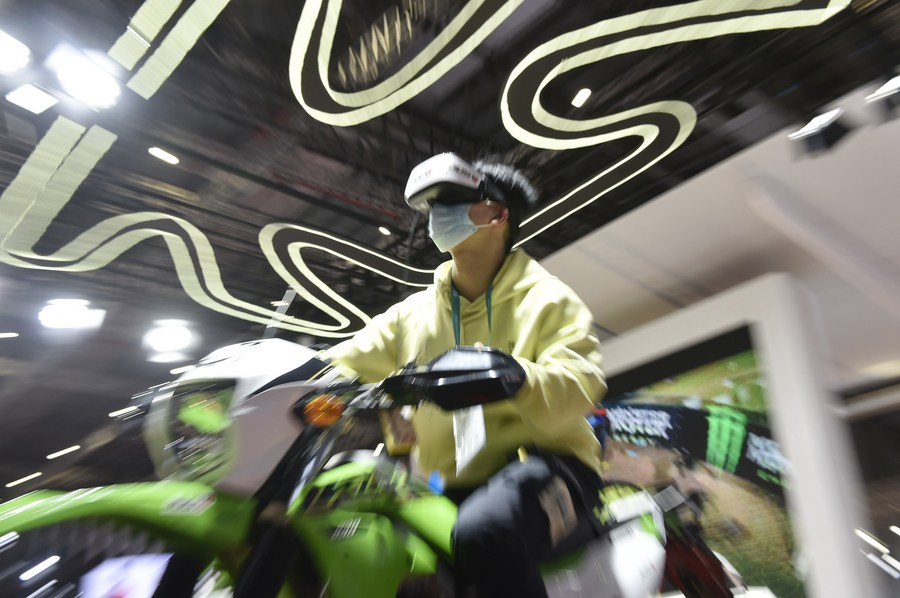Chinese tech giants looking to build metaverse
 0 Comment(s)
0 Comment(s) Print
Print E-mail Xinhua, January 27, 2022
E-mail Xinhua, January 27, 2022

As "metaverse" became the buzzword of 2021, Chinese tech giants are also looking for opportunities in what might be the next phase in the internet's evolution.
Since Mark Zuckerberg announced Facebook's official rebranding as Meta last October, Chinese tech companies have also been buzzing with the idea to build a vast digital world, integrating the internet, virtual reality, augmented reality, and AI.
Last month, tech giant Baidu held its annual developers' conference, Baidu Create 2021, in Xirang or Land of Hope, the company's answer to the metaverse.
To enter the digital realm, users need to create their avatars. Then, users are free to roam and interact with fellow avatars, from attending conferences to having virtual tours.
Baidu said that the annual developers' conference represented China's first large-scale event held entirely in the metaverse.
This month, the Communication University of China (CUC) launched a virtual campus in Xirang, making it China's first academic institution to enter the industry.
The CUC digital art department recreated the campus using 3D modeling, street view maps, and other digital tools. Students and visitors can explore the virtual campus using VR headsets, mobile phones, and computers.
Earlier this month, Huawei and Beijing Shougang Park jointly launched a metaverse experience activity. Users can enter a new world by scanning a QR code in the park with their smartphones to enjoy the performance of a robot band and a virtual light show. Users can also immerse themselves in a game experience by participating in AR group warfare games.
Nubia Technology Co., Ltd., a subsidiary of ZTE, revealed recently that a professional technology team had been set up in the company last year to focus on the hardware technology for the metaverse.
Last month, NetEase signed a strategic cooperation agreement with the government of Sanya city in south China's island province of Hainan. NetEase will set up its Hainan headquarters and build a metaverse industrial base project in Sanya as part of the deal.
At a financial report meeting last November, NetEase founder and CEO Ding Lei said that NetEase is ready for the metaverse, noting the company is prepared for related technologies. "When the starting gun fires, we may run faster than anyone else," said Ding.
Netease showed off the muscles of the metaverse in its immersive activity system called Yaotai. Last August, the 16th International Symposium on biomineralization took place in Yaotai, the first show of the immersive activity system.
Yaotai increased the sense of reality and virtual meeting immersion and reduced the usage threshold. Users can attend the meeting with one click.
Last year, e-commerce giant Alibaba launched a "Metaverse Art Exhibition" on its Tmall/Taobao mobile app during the November shopping spree. Shoppers could receive a complimentary digital collection for every purchase of a limited physical product, such as a Burberry scarf. A digital avatar of Beethoven conducted the "metaverse symphony," where musicians played virtual instruments featuring brands such as a Bobbi Brown trumpet or Coca-Cola drums. Consumers could also buy these virtual products.
Tencent announced last month that it would officially launch TMELAND, the first Chinese virtual music festival. Users can create their virtual images, communicate and interact with each other, and have the immersive audio entertainment experience combining reality and the virtual world through virtual live streaming and virtual concerts.






Go to Forum >>0 Comment(s)